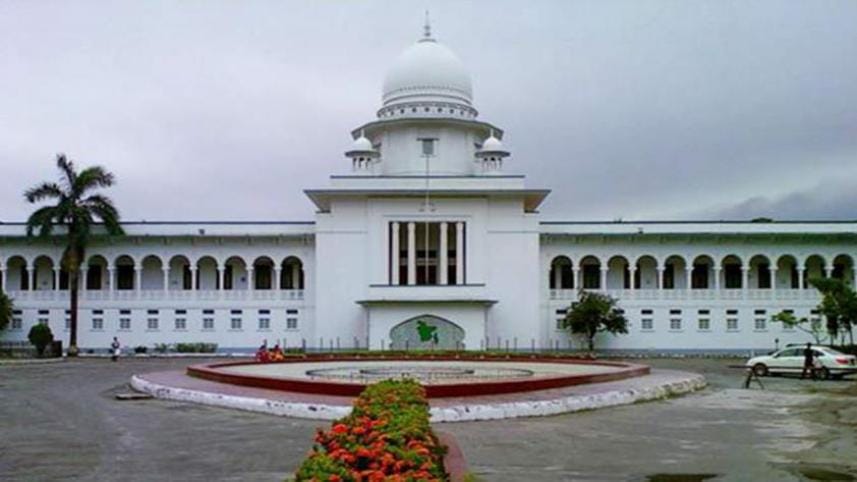BB patronises big defaulters

The High Court yesterday observed that the country’s banking sector is no longer business-friendly, rather banks have become organisations of usurers.
“Another Tk 100,000 crore may be laundered from the country if the big loan defaulters are given further opportunity to get bank loans in line with Bangladesh Bank’s May 16 circular,” the court said at a hearing on a writ petition.
The HC halted the loan defaulters’ privilege to secure further loans by rescheduling their defaulted loans upon a down payment of just 2 percent of the total loan amount.
It issued a status quo till June 23 on the BB circular allowing defaulters to reschedule their loans with a repayment period of up to 10 years and get further loans.
Referring to the BB notice, the HC said, “The central bank on the one hand is patronising the big loan defaulters by giving them various facilities. And on the other hand, it is harassing small loan defaulters by filing cases related to loans and bank cheques.”
It is like punishing the good and favouring the bad.”
The HC bench of Justice FRM Nazmul Ahasan and Justice KM Kamrul Kader passed the order following a petition filed by Human Rights and Peace for Bangladesh (HRPB) seeking a stay on the BB circular.
Petitioner’s lawyer Manzill Murshid told The Daily Star that following the HC order, the defaulters will not be able to have their loans rescheduled upon a down payment of 2 percent of their total loan amount.
“The status quo will continue till June 23,” he added.
At the end of last year, the total defaulted loans in the banking sector stood at Tk 93,370 crore, up by 25.66 percent year-on-year, according to the BB.
The court said, “The BB has given the big loan defaulters opportunities to get further loans by rescheduling their existing ones at 9 percent interest. At the same time, it is compelling genuine businesspeople to pay 14 to 15 percent interest, which is a discrimination.”
“Bangladesh Bank is an independent entity, but how could it work in favour of the loan defaulters?” the court questioned.
It observed that the central bank is yet to implement the prime minister’s instruction to bring down the lending rate for bank loans to a single digit.
During the court proceedings, M Moniruzzaman, counsel for the BB, told the court that his client has the authority to issue a notice for rescheduling bank loans.
The BB issued the notice on May 16 to bring the loan defaulters to book, he argued.
Manzill opposed Moniruzzaman’s argument, saying the BB committed a fraud with the HC by issuing this notice.
The lawyer for the BB had told the HC on May 16 afternoon that the central bank would not issue any notice allowing loan defaulters to reschedule their loans, Manzill mentioned.
But only a couple of hours later, the BB issued the notice at 4:00pm, allowing the loan defaulters to get further loans, which is a “fraudulence” with the HC, Manzill said.
Deputy Attorney General ABM Abdullah-Al-Mahmud Bashar represented the state.
HC PROCEEDINGS
On May 16, the same HC bench ordered the BB to submit by June 23 a list of names and addresses of borrowers, who defaulted on loans of over Tk 1 crore each.
It also asked the BB governor to submit to it a report by the same date with details on the money laundered to different countries and the steps taken to recover it.
The court said it would take necessary action against the BB if it fails to submit the list and the report to it.
The HC will go on annual vacation on May 24 and reopen on June 16.
Earlier on February 13, the HRPB moved the writ petition at the HC, which issued a rule asking the authorities to explain why their failure or inaction to stop various irregularities and corruption in sanctioning loans and offering waiver of interest payments against bank loans in the last 20 years should not be declared illegal.
Those made respondents to the rule are secretaries to the Cabinet Division, the Prime Minister’s Office, the finance ministry, the financial institutions division and the law ministry, the BB governor, and the chairmen of the National Board of Revenue and the Anti-Corruption Commission.



 For all latest news, follow The Daily Star's Google News channel.
For all latest news, follow The Daily Star's Google News channel.
Comments